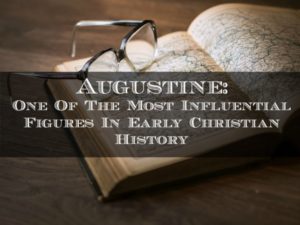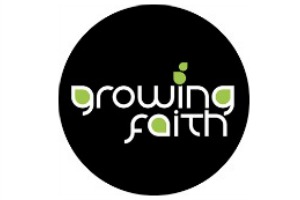Christianity has a history. Nancy Guthrie, in her book Discovering Jesus in the Old Testament (2010, Tyndale) highlights the fact this history started before the beginning of time. That before Genesis 1:1 happened, God planned for His Son Jesus to show us grace (2 Timothy 1:9). Since then, a lot has happened. We’ve had Abraham, Isaac, Jacob, David, Solomon, Daniel, The Prophets, JESUS, Peter, Luke, Paul, Timothy, Augustine, Luther, Spurgeon and we could go on. Yet how much do we really know of this history and should we know more?
If I was honest I could confidently say that after growing up in a Christian home and attending a Christian school for the majority of my school years, I have known about most of the characters from the Bible for a number of years. I could also say I know the names of Luther, Spurgeon, Wesley and Calvin mainly because they were the names of my school sporting teams. Unfortunately though, while I have a sound level of Biblical literacy, my knowledge of Christian history post-Bible is fairly limited. Prior to my husband studying a unit on Christian history, I wouldn’t be able to say who Spurgeon or Wesley were or what they contributed to the universal Church as we know it today.
As a former teacher, I realise the importance of teaching students history of the world so that students can learn from the past and not repeat the same mistakes. Yet I am amazed that so often we approach Christianity with the attitude that we should know the Bible and little else. Absolutely, the Bible is the living, inspired Word of God (2 Timothy 3:16) and the most vital piece of literature a Christian should know and understand. But I also believe that in order to learn from the entirety of Christian history, we must have an understanding of what has occurred chronologically between the epistles of John and the world we find ourselves in today.
Justo L. Gonzalez writes, “Without understanding the past, we are unable to understand ourselves, for in a sense the past still lives in us and influences who we are and how we understand the Christian message.” (The Story of Christianity, Vol. 1, 2010, HarperOne, p.3). We do not live in a vacuum and our Christian life and interpretation of the Bible is heavily influenced by those around us- our pastors, parents, spouses, Church denomination and Christian traditions. “When we stand, sit, or kneel in church; when we sing a hymn, recite a creed (or refuse to recite one); when we build a church or preach a sermon, a past of which we may not be aware is one of the factors influencing our actions” (Gonzalez, The Story of Christianity, Vol. 1, 2010, HarperOne, p.3). Therefore, one could argue that understanding our entire Christian history, or at least having some understanding of what took place after the completion of the Bible would better equip us to intentionally live out our faith.
In Hebrews 12:1-3, the writer urges us to be inspired by those heroes of the faith (particularly those mentioned in the preceding chapter) who have gone before us and “run with perseverance” (Hebrews 12:1). This would appear to indicate that we can use the knowledge of Christians who have gone before us, with our eyes firmly fixed on Jesus (Hebrews 12:2), to motivate us in our Christian walk. John Piper believes this “witnessing” is that these Christians are telling us they have finished the race of the Christian life and are showing us it can be done (see Piper’s post here).
Just as Luke’s book of Acts does not seem to reach a definite conclusion (ending with Paul preaching in Rome, Acts 28:30-31), so too can we come to see that the Christian history will not end “before the end of all history” (Gonzalez, The Story of Christianity, Vol. 1, 2010, HarperOne, p.2; italics mine). Let us then be spurred on to learn more about Jesus and His body the Church. Whether it is good or bad, let us get better equipped! In this, may we see the Holy Spirit encourage us, admonish us and grow us as we see how fellow Christians, sinful as they may be, have fought for the God whom we serve and the Word of God that we treasure.
photo credit: Vincent_AF via photopin cc









Hi Emily, i have just read another of Nancy Guthrie’s books on grief. It was excellent.
Hi Captain & Mrs Duckman. I have heard this was a great book and I’m enjoying her insights. It will have to go on my to-read list!